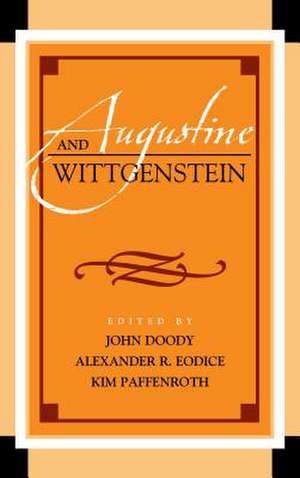AUGUSTINE AMP WITTGENSTEIN: Augustine in Conversation: Tradition and Innovation
en Limba Engleză Hardback – 14 sep 2018
Preț: 688.37 lei
Preț vechi: 893.98 lei
-23% Nou
Puncte Express: 1033
Preț estimativ în valută:
131.72€ • 137.87$ • 109.63£
131.72€ • 137.87$ • 109.63£
Carte tipărită la comandă
Livrare economică 31 martie-14 aprilie
Preluare comenzi: 021 569.72.76
Specificații
ISBN-13: 9781498585262
ISBN-10: 1498585264
Pagini: 242
Dimensiuni: 152 x 229 x 22 mm
Greutate: 0.6 kg
Editura: Rowman & Littlefield
Seria Augustine in Conversation: Tradition and Innovation
ISBN-10: 1498585264
Pagini: 242
Dimensiuni: 152 x 229 x 22 mm
Greutate: 0.6 kg
Editura: Rowman & Littlefield
Seria Augustine in Conversation: Tradition and Innovation
Notă biografică
Edited by Kim Paffenroth; Alexander R. Eodice and John Doody - Contributions by Myles Burnyeat; Brian R. Clack;...
Descriere
This collection of essays focuses on Augustine's relationship to Wittgenstein and critically examines the two in light of various philosophical connections between them. Its scope is intentionally broad in order to show that reading each of these philosophers through the lens of the other enhances our understanding of both.













